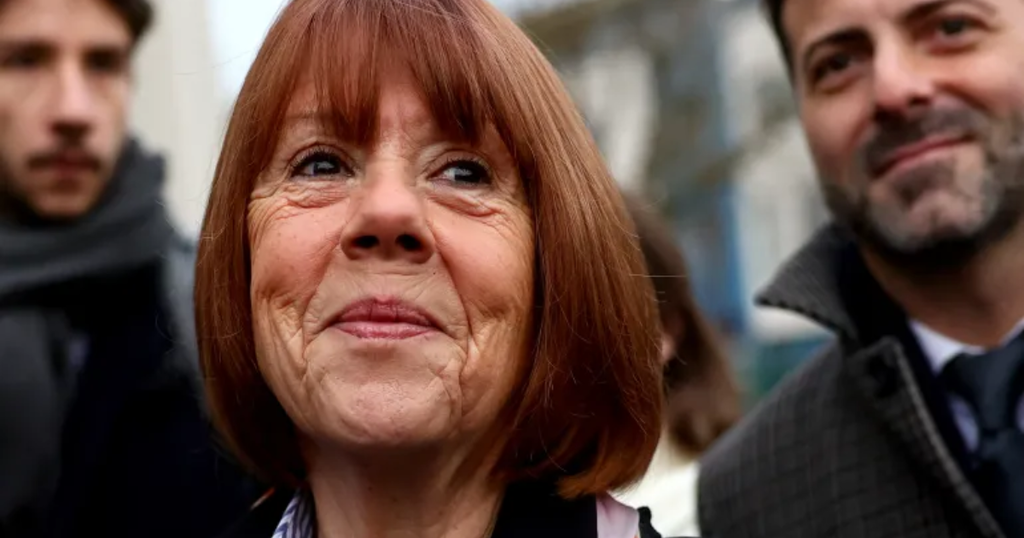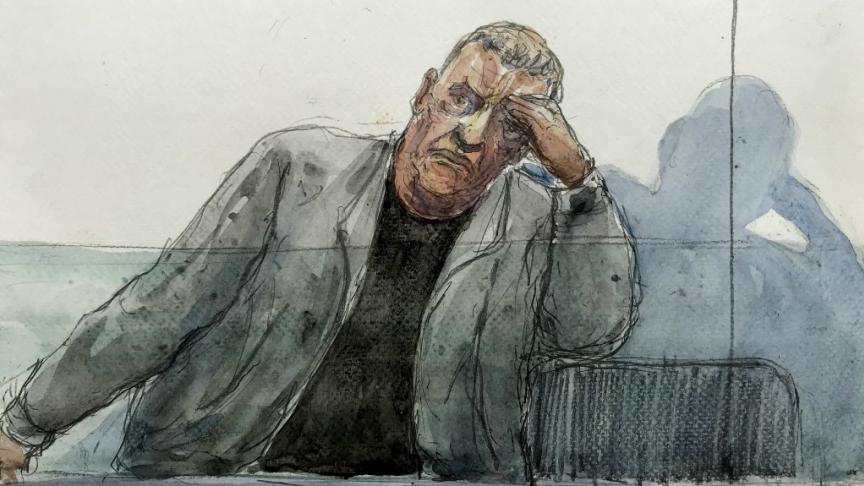Gisèle Pelicot has paid tribute to sexual violence victims still fighting for recognition in society after her ex-husband and 50 other men were found guilty in the biggest rape trial in French history.
As political leaders hailed the trial as a turning point in the battle against rape culture and victim shaming, Pelicot, 72, said on Thursday that she had never regretted her decision to waive her right to anonymity in order to hold the trial in public.
As crowds of supporters gathered in the French city of Avignon to cheer her on, she said outside court that on the final day of the months-long trial she was thinking “of the unrecognised victims, whose stories often remain in the shadows”.
“I want you to know that we share the same fight,” she said. “When I opened the doors to this trial that began on 2 September, I wanted all of society to be a witness to the debates that took place here … I now have confidence in our capacity to find a better future where everyone, women and men alike, can live in harmony with respect and mutual understanding.”
Her ex-husband, Dominique Pelicot, one of the worst sex offenders in modern French history, was sentenced to 20 years in prison for drugging her and inviting dozens of men to rape her in her home in the south of France over almost a decade of their marriage. The presiding judge, Roger Arata, said the 72-year-old would not be eligible for parole until he had served two-thirds of his sentence.
Guilty verdicts were also returned for all the accused men, including a nurse, a soldier, a journalist, a prison warden and delivery drivers, aged from 26 to 74. Forty-seven were convicted of rape, two of attempted rape and two of sexual assault.
Praising her bravery, international leaders rushed to thank Gisèle Pelicot for refusing to be shamed and exposing the pervasiveness of sexual violence.
“Thank you, Gisèle Pelicot!” the German chancellor, Olaf Scholzwrote. “You courageously went from anonymity to a public figure and fought for justice. You gave women around the world a strong voice. The shame always lies with the perpetrator.”
The Spanish prime minister, Pedro Sánchez, said: “What dignity. Thank you, Gisèle Pelicot.”
The leader of France’s Greens, Marine Tondelier, who had travelled to Avignon to attend some of the hearings, said the trial had “shattered society’s taboos and marks a turning point in the fight against rape culture. Shame will change sides.”
Some expressed disappointment that some of the jail terms handed down to Dominique Pelicot’s co-defendants by the five-member panel of judges were lower than those suggested by the state prosecutor. The sentences ranged from three to 15 years. Several had some years suspended. .
“Shame!” shouted some feminist campaigners outside the court as the sentences were delivered.
Laurence Rossignol, a Socialist senator and former minister for family and women’s rights, welcomed the convictions but joined others in questioning some of the sentencing. “The gap between the sentences the prosecutor called for and some of the sentences handed down is disappointing and significant,” she said. “The responsibility of consumers of porn, paid sex or a sedated wife is always minimised.”
When asked for her thoughts on the sentences, however, Gisèle Pelicot said: “I respect the court and its decision of the verdict.”
The retired logistics manager had looked on with her sons and daughter as the Arata read out the men’s jail terms. She has been hailed as a feminist hero worldwide for opening the doors to the trial, and members of the public outside the court have cheered daily for the woman who said she was “determined that things change in this society”, in particular the “macho, patriarchal society that trivialises rape”.
For nearly four months, the court heard that her husband, a retired electrician and former estate agent, had crushed sleeping tablets and anti-anxiety medication into her mashed potato, coffee or ice-cream and invited dozens of men to rape her over a nine-year period from 2011 in the village of Mazan, Provence, where the couple had retired.
After videos of the rapes by him and other men were found meticulously categorised on his computer hard drive in a file labelled “abuse”, Dominique Pelicot admitted the charges in court, telling judges: “I am a rapist.”
He was also convicted on Thursday of placing hidden cameras in bathrooms and bedrooms in his own home and that of his family to make and distribute naked images of his adult daughter and the wives of his sons.
There are now questions over whether Pelicot could have been a serial offender for decades. He faces a further investigation for the rape and murder of an estate agent in Paris in 1991 and an attempted rape in 1999. Investigators in Nanterre have reopened both cases and placed him under formal investigation as police consider potential links to other cases involving young estate agents.
Many of the men on trial alongside Dominique Pelicot denied that what they had done to Gisèle Pelicot was rape in testimony that has fuelled nationwide discussion about consent and rape laws.
One, Dominique Davies, a lorry driver and former soldier, was given a 13-year prison sentence for raping Gisèle Pelicot on six different occasions. He had denied rape, saying he had not intended to rape anyone. He told the court: “I didn’t wake up one morning and say to myself ‘hey, today I’m going to go to a couple’s house and commit a crime’.”
He said he felt he had had enough guarantees from Dominique Pelicot, adding: “I just forgot one big guarantee. Madame’s consent.”
Another of the men, Joan Kawai, 26, had told the court: “I’m a rapist because the law says I am,” but said he had not intended to rape and “at the time I did not know what consent was”. He had learned what consent meant while in prison, he said.
Kawai had been a soldier in the French military and was the youngest man on trial. He was found guilty of rape and sentenced to 10 years in prison.
The men have 10 days to decide whether to appeal against their sentences. Dominique Pelicot’s lawyer, Béatrice Zavarro, said she would consider an appeal, but she also expressed hope that Gisèle Pelicot would find solace in the rulings.
“I wanted Mrs Pelicot to be able to emerge from these hearings in peace, and I think that the verdicts will contribute to this relief for Mrs Pelicot,” she said.







